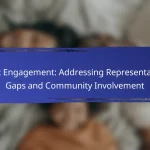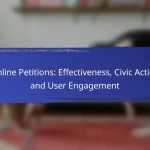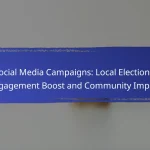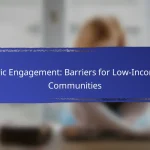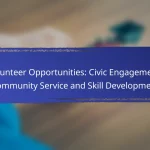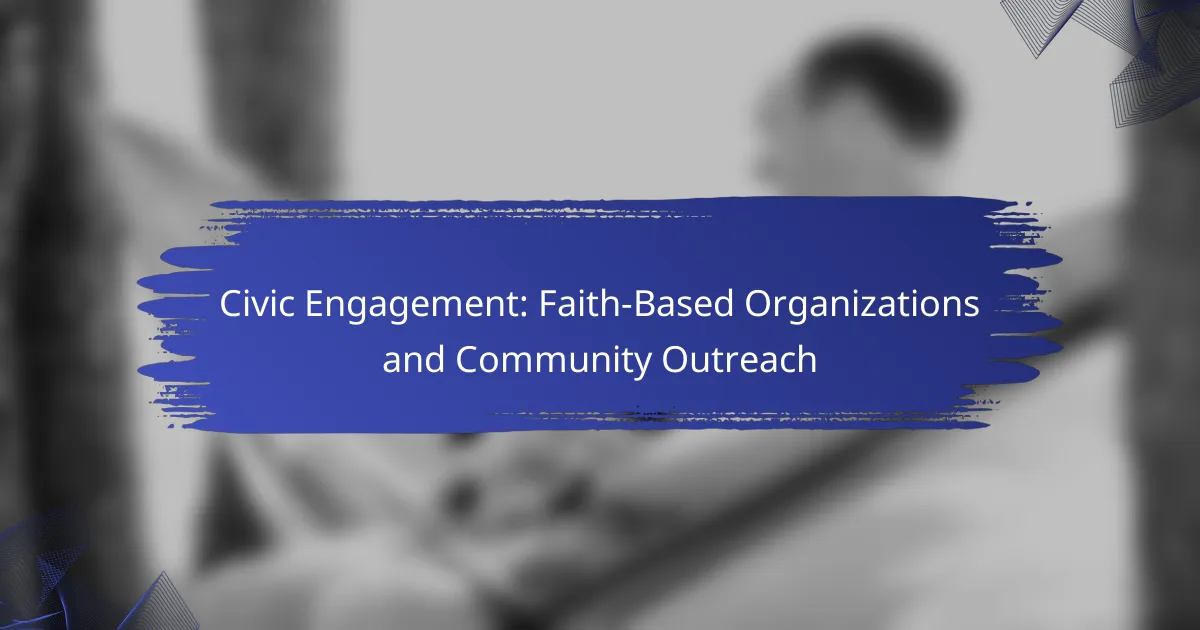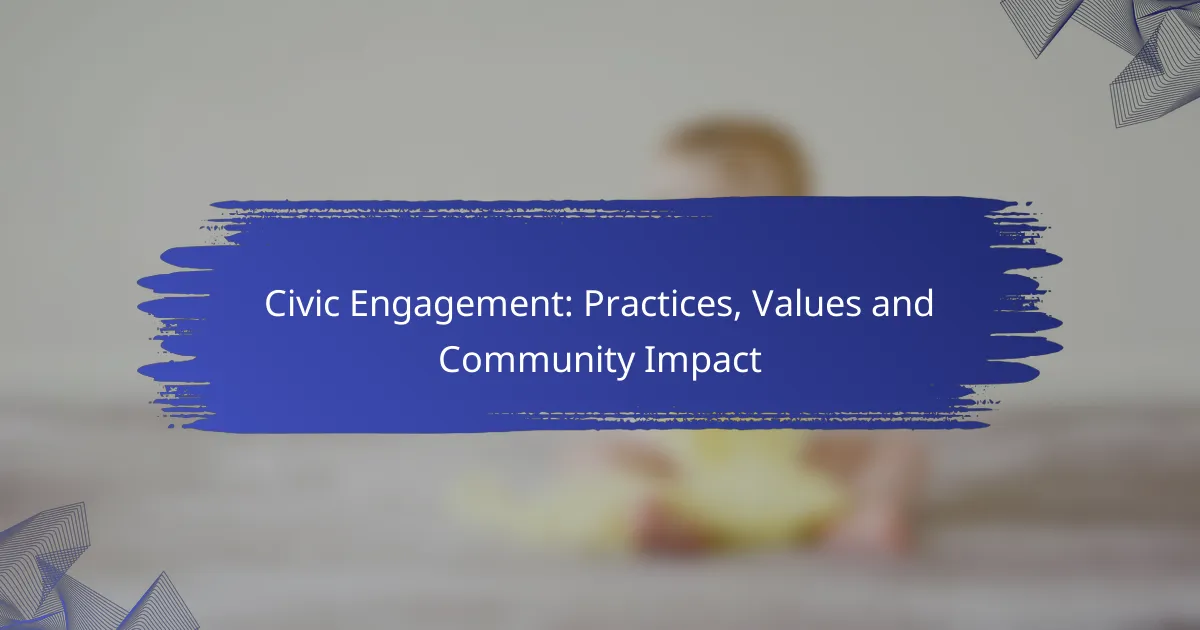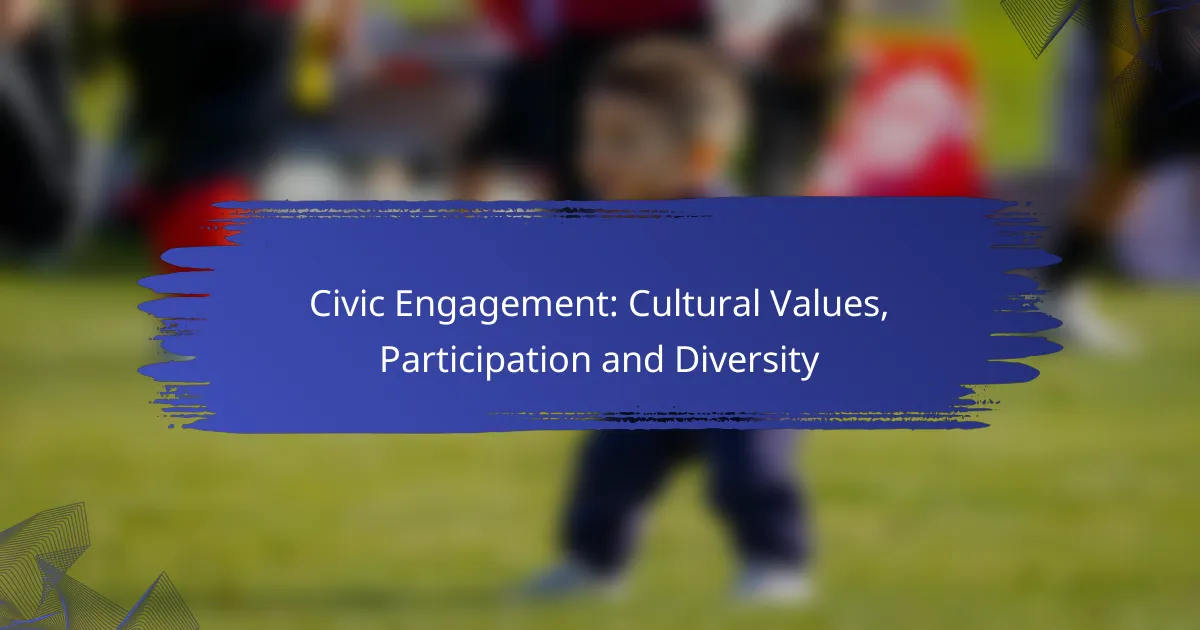Faith-based organizations serve as crucial catalysts for civic engagement, uniting communities in Los Angeles around shared values and social responsibilities. Through targeted outreach initiatives, these organizations empower residents to participate actively in civic activities, fostering a strong sense of belonging and collaboration.
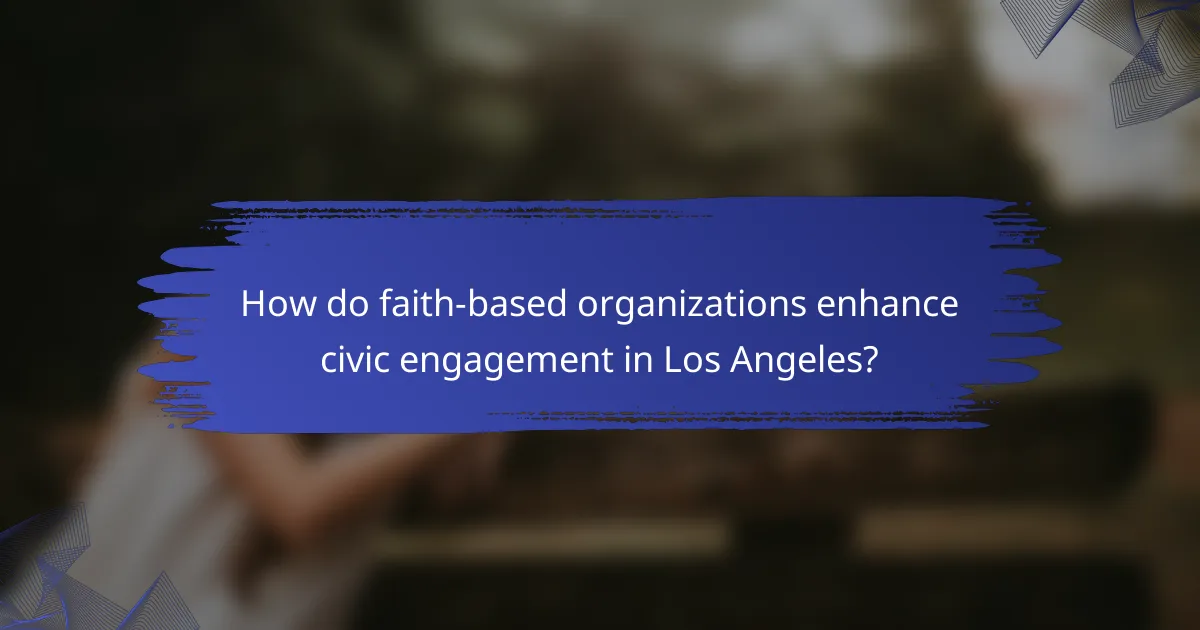
How do faith-based organizations enhance civic engagement in Los Angeles?
Faith-based organizations in Los Angeles play a vital role in enhancing civic engagement by mobilizing communities around shared values and social responsibilities. They facilitate participation in various civic activities, fostering a sense of belonging and empowerment among residents.
Community service programs
Community service programs organized by faith-based organizations address local needs while encouraging volunteerism. These initiatives often include food drives, tutoring programs, and health clinics, which not only serve the community but also build relationships among participants.
For example, many churches partner with local schools to provide after-school tutoring, helping students improve their academic performance while engaging volunteers from the congregation. Such programs can significantly impact community cohesion and support networks.
Voter registration drives
Voter registration drives led by faith-based organizations are crucial for increasing electoral participation. These drives often take place during services or community events, making it convenient for individuals to register and learn about the voting process.
In Los Angeles, many faith communities collaborate with local election offices to ensure that their members are informed about upcoming elections and the importance of their votes. This grassroots approach can lead to higher voter turnout, especially among underrepresented populations.
Advocacy for social justice
Faith-based organizations in Los Angeles actively advocate for social justice issues, addressing systemic inequalities and promoting policy changes. They often mobilize their congregations to participate in rallies, community forums, and discussions on critical topics such as housing, immigration, and healthcare access.
By leveraging their moral authority and community connections, these organizations can influence local policies and raise awareness about social issues. Their efforts not only empower individuals but also contribute to a more equitable society.
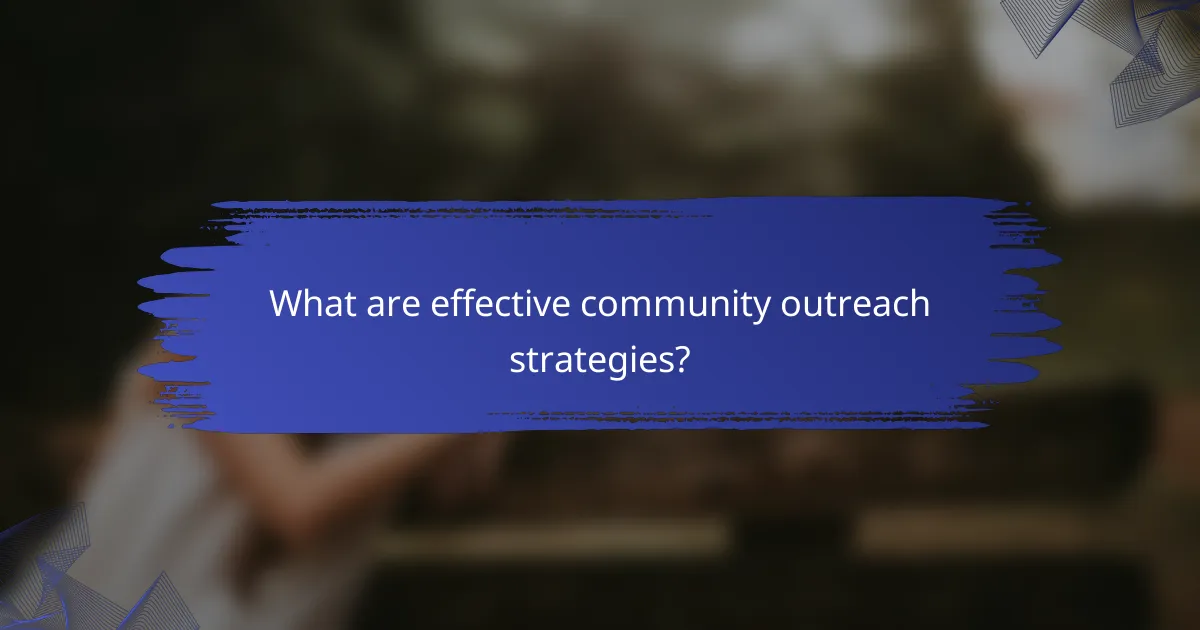
What are effective community outreach strategies?
Effective community outreach strategies involve engaging local residents through targeted initiatives that foster participation and collaboration. These strategies often leverage partnerships, forums, and digital platforms to enhance communication and mobilize resources.
Partnerships with local nonprofits
Forming partnerships with local nonprofits can significantly amplify the impact of community outreach efforts. Nonprofits often have established trust within the community and can provide valuable insights into local needs and challenges.
Consider collaborating on joint events, resource sharing, or co-hosting initiatives that align with both organizations’ missions. This approach not only broadens reach but also enhances credibility and resource availability.
Hosting community forums
Community forums serve as a platform for dialogue between organizations and residents, allowing for the exchange of ideas and concerns. These gatherings can take various forms, such as town hall meetings, workshops, or informal discussions.
To maximize participation, choose accessible locations and promote the events through local channels. Providing refreshments or incentives can also encourage attendance and engagement.
Utilizing social media platforms
Social media platforms are powerful tools for community outreach, enabling organizations to connect with a wider audience quickly and effectively. By sharing updates, events, and resources, organizations can keep the community informed and engaged.
Focus on creating engaging content that resonates with your audience, such as videos, infographics, or live Q&A sessions. Regular interaction and responsiveness to comments can foster a sense of community and encourage further participation.
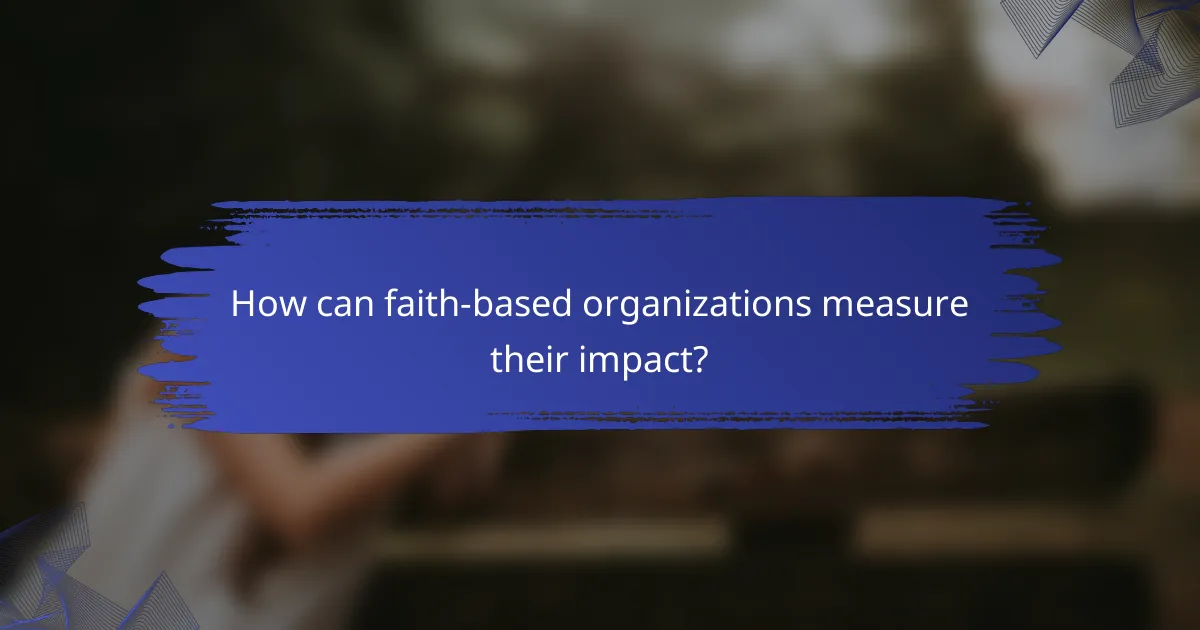
How can faith-based organizations measure their impact?
Faith-based organizations can measure their impact through various methods that assess community engagement and program effectiveness. By utilizing tools such as surveys, participation tracking, and community feedback analysis, these organizations can gain valuable insights into their outreach efforts.
Surveys and feedback forms
Surveys and feedback forms are essential tools for gathering direct input from community members. These instruments can include questions about satisfaction, perceived benefits, and suggestions for improvement. Organizations should aim for a response rate of at least 20-30% to ensure the data is representative.
To maximize participation, consider distributing surveys both online and in-person, and offer incentives such as small rewards or recognition for completing them. Keep questions clear and concise, focusing on specific programs or events to gather actionable insights.
Tracking participation rates
Tracking participation rates helps organizations understand how many community members engage with their programs. This can be done by recording attendance at events, monitoring volunteer involvement, and analyzing membership growth over time. A consistent increase in participation can indicate successful outreach efforts.
Establish benchmarks by comparing current participation rates with historical data or similar organizations. Aim for a growth rate of 5-10% annually to demonstrate effective community engagement. Regularly review this data to identify trends and areas needing improvement.
Analyzing community feedback
Analyzing community feedback involves reviewing comments, suggestions, and concerns expressed by participants. This can be done through focus groups, social media interactions, or direct communication channels. Understanding community sentiments can guide program adjustments and enhance overall effectiveness.
Consider categorizing feedback into themes such as program effectiveness, community needs, and suggestions for new initiatives. Regularly share findings with stakeholders to foster transparency and encourage ongoing dialogue. This practice not only improves programs but also strengthens community trust and involvement.
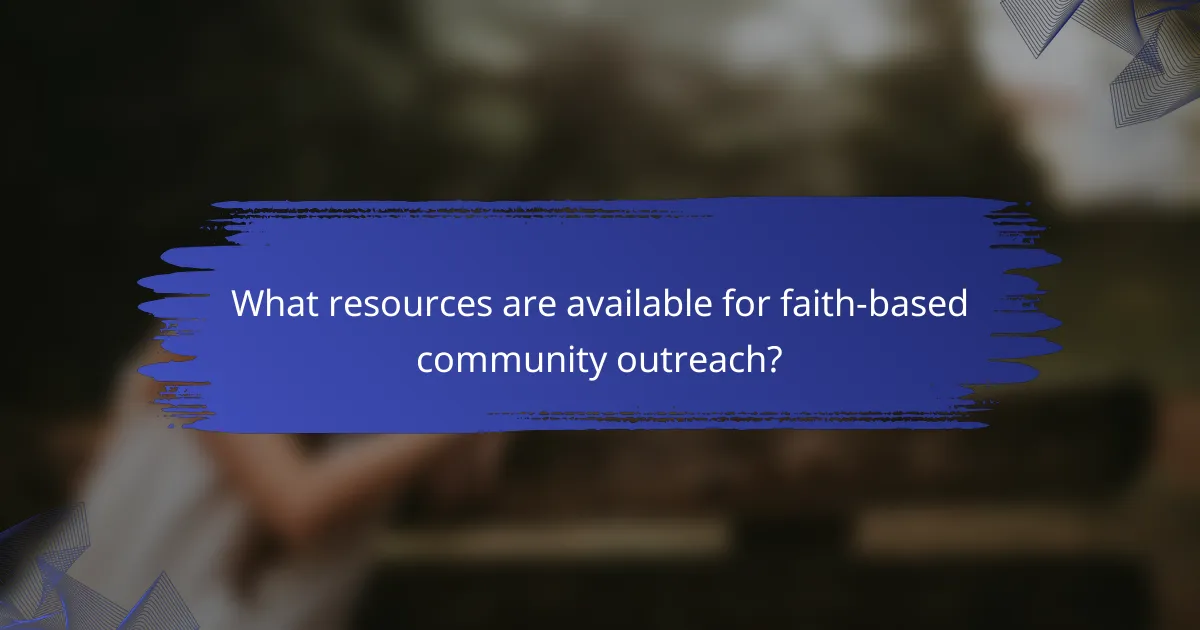
What resources are available for faith-based community outreach?
Faith-based organizations can access a variety of resources for community outreach, including grants, training workshops, and online toolkits. These resources help enhance their engagement efforts and support their missions in serving local communities.
Grants from government programs
Government programs often provide grants specifically for faith-based community outreach initiatives. These grants can vary widely in amount, typically ranging from a few thousand to several hundred thousand dollars, depending on the program and project scope.
Organizations should research federal, state, and local grant opportunities, such as those from the U.S. Department of Health and Human Services or community development block grants. It’s essential to carefully review eligibility requirements and application deadlines to maximize funding chances.
Training workshops from civic organizations
Civic organizations frequently offer training workshops tailored for faith-based groups looking to enhance their outreach skills. These workshops cover various topics, including community organizing, volunteer management, and effective communication strategies.
Participating in these workshops can provide valuable insights and practical tools to improve outreach efforts. Organizations should look for local workshops or online options that fit their schedules and specific needs.
Online toolkits for engagement
Numerous online toolkits are available to assist faith-based organizations in planning and executing community outreach projects. These toolkits often include templates, best practices, and step-by-step guides to streamline the process.
Examples of useful online resources include the National Faith-Based Initiative and local community service platforms. Organizations should utilize these toolkits to ensure their outreach strategies are effective and impactful.
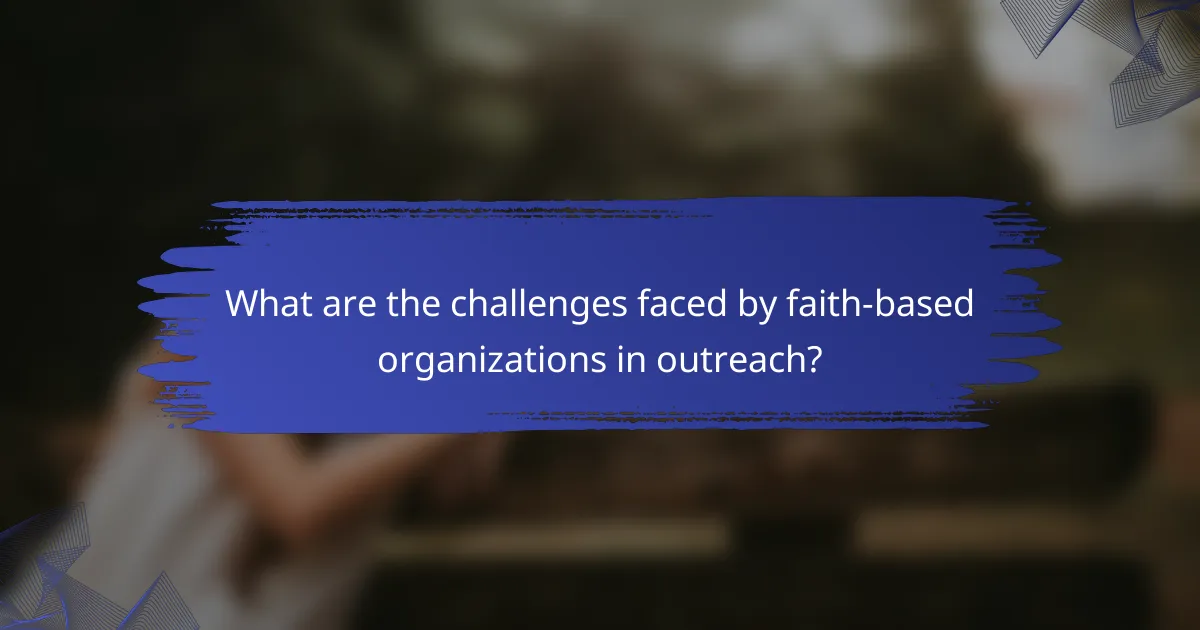
What are the challenges faced by faith-based organizations in outreach?
Faith-based organizations often encounter several challenges in their outreach efforts, including funding limitations, community resistance, and lack of volunteer engagement. Addressing these obstacles is crucial for maximizing their impact and fostering community connections.
Funding limitations
Many faith-based organizations struggle with securing adequate funding for outreach programs. This can stem from a reliance on donations, which may fluctuate seasonally or be impacted by economic downturns.
To mitigate funding issues, organizations can diversify their revenue streams by applying for grants, partnering with local businesses, or hosting fundraising events. Establishing a clear budget and prioritizing essential programs can also help manage limited resources effectively.
Community resistance
Community resistance can manifest as skepticism towards faith-based initiatives, particularly in diverse or secular environments. This resistance may arise from misunderstandings about the organization’s mission or perceived exclusivity.
To overcome this challenge, organizations should engage in open dialogue with community members, actively listen to their concerns, and demonstrate a commitment to serving all individuals, regardless of their beliefs. Building partnerships with local groups can also enhance credibility and foster trust.
Lack of volunteer engagement
Recruiting and retaining volunteers is often a significant hurdle for faith-based organizations. Factors such as time constraints, lack of awareness, or insufficient incentives can contribute to low volunteer participation.
To boost engagement, organizations should clearly communicate the impact of volunteer work and offer flexible opportunities that accommodate various schedules. Providing training, recognition, and a supportive environment can also encourage volunteers to remain active and committed to the organization’s mission.
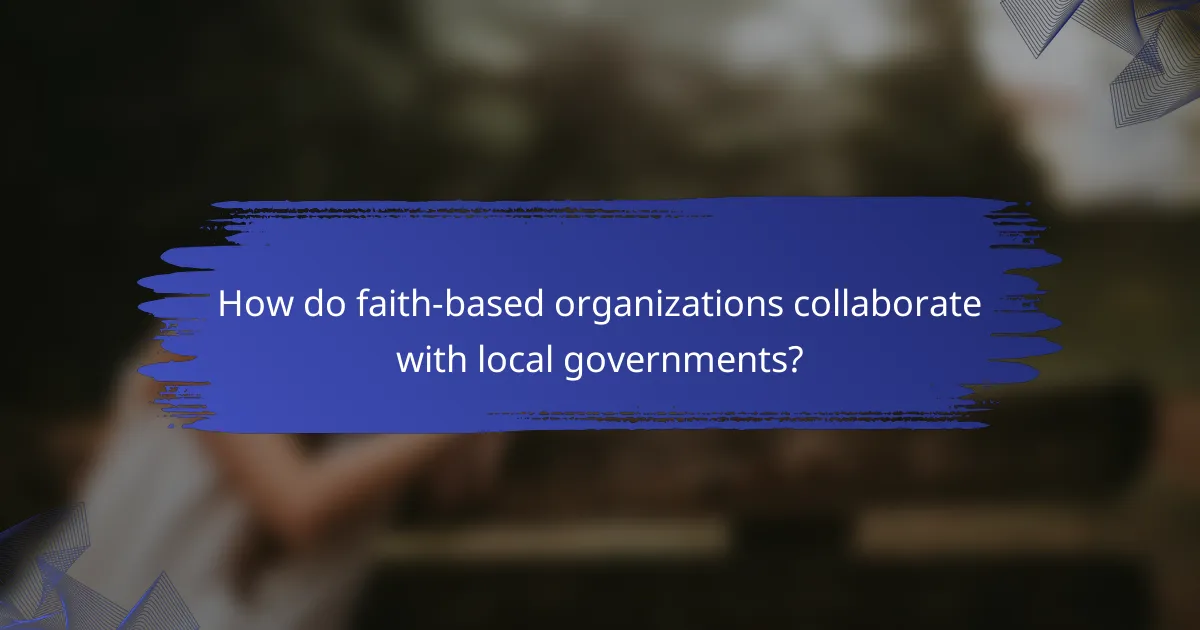
How do faith-based organizations collaborate with local governments?
Faith-based organizations often collaborate with local governments to address community needs through shared resources and mutual goals. This partnership can enhance civic engagement and improve service delivery in areas such as social services, education, and public health.
Joint community initiatives
Joint community initiatives involve faith-based organizations and local governments working together on specific projects that benefit the community. These can include food drives, health fairs, and educational programs aimed at underserved populations. By pooling resources, both entities can maximize their impact and reach more individuals.
For example, a local church might partner with the city to provide a monthly food distribution event, utilizing both the church’s facilities and the government’s logistical support. Such collaborations can foster stronger community ties and improve overall well-being.
Advisory boards for civic projects
Faith-based organizations can play a crucial role on advisory boards for civic projects, offering insights and perspectives that reflect community values. These boards often guide local government initiatives, ensuring that the needs of diverse populations are considered in decision-making processes.
For instance, a faith leader might serve on a board focused on affordable housing, advocating for policies that align with the community’s moral and ethical standards. This involvement not only strengthens the relationship between faith groups and government but also encourages greater civic participation among congregants.
